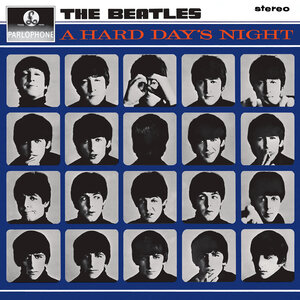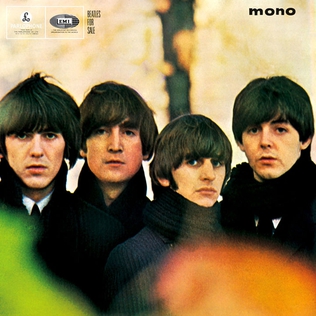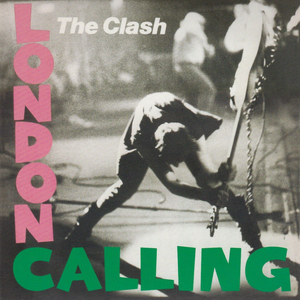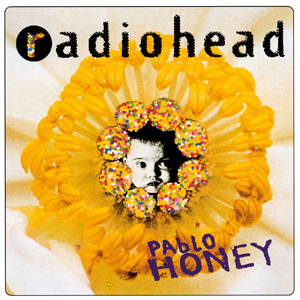Related Research Articles
Psychedelic rock is a rock music genre that is inspired, influenced, or representative of psychedelic culture, which is centered on perception-altering hallucinogenic drugs. The music incorporated new electronic sound effects and recording techniques, extended instrumental solos, and improvisation. Many psychedelic groups differ in style, and the label is often applied spuriously.

Groningen is the capital city and main municipality of Groningen province in the Netherlands. It is the largest city in the north of the Netherlands. As of December 2021, it had 235,287 inhabitants. It has a land area of 168.93 km2 (65.22 sq mi), and a total area, including water, of 180.21 km2 (69.58 sq mi). Its population density is 1,367 residents per km2. On 1 January 2019, it was merged with the municipalities of Ten Boer and Haren. The Groningen-Assen metropolitan area has about half a million inhabitants. Groningen is a university city, and students comprise an estimated 25% of its total population. Groningen was established more than 950 years ago. Historically, it was a semi-independent city-state, a member of the Hanseatic League, and the dominant regional power in the north of the Netherlands.

A Hard Day's Night is the third studio album by the English rock band the Beatles, released on 10 July 1964 by Parlophone, with side one containing songs from the soundtrack to their film of the same name. The American version of the album was released two weeks earlier, on 26 June 1964 by United Artists Records, with a different track listing that included selections from George Martin's film score. In contrast to the Beatles' first two albums, all 13 tracks on A Hard Day's Night were written by John Lennon and Paul McCartney, showcasing the development of their songwriting partnership.

Beatles for Sale is the fourth studio album by the English rock band the Beatles. It was released on 4 December 1964 in the United Kingdom on EMI's Parlophone label. The album marked a departure from the upbeat tone that had characterised the Beatles' previous work, partly due to the band's exhaustion after a series of tours that had established them as a worldwide phenomenon in 1964. Beatles for Sale was not widely available in the US until 1987, when the Beatles' catalogue was standardised for release on CD. Instead, eight of the album's fourteen tracks appeared on Capitol Records' concurrent release, Beatles '65, issued in North America only.
Hard rock or heavy rock is a loosely defined subgenre of rock music typified by a heavy use of aggressive vocals, distorted electric guitars, bass guitar, and drums, sometimes accompanied with keyboards. It began in the mid-1960s with the garage, psychedelic and blues rock movements. Some of the earliest hard rock music was produced by the Kinks, the Who, the Rolling Stones, the Yardbirds, Cream and the Jimi Hendrix Experience. In the late 1960s, bands such as the Jeff Beck Group, Iron Butterfly, the Beatles, Led Zeppelin, Golden Earring, Steppenwolf and Deep Purple also produced hard rock.
Synth-pop is a subgenre of new wave music that first became prominent in the late 1970s and features the synthesizer as the dominant musical instrument. It was prefigured in the 1960s and early 1970s by the use of synthesizers in progressive rock, electronic, art rock, disco, and particularly the Krautrock of bands like Kraftwerk. It arose as a distinct genre in Japan and the United Kingdom in the post-punk era as part of the new wave movement of the late 1970s to the mid-1980s.

London Calling is the third studio album by English rock band the Clash. It was originally released as a double album in the United Kingdom on 14 December 1979 by CBS Records, and in the United States in January 1980 by Epic Records.

Pablo Honey is the debut studio album by the English rock band Radiohead, released on 22 February 1993 in the UK by Parlophone and on 20 April in the US by Capitol Records. It was produced by Sean Slade, Paul Q. Kolderie and Radiohead's co-manager Chris Hufford.
Power pop is a form of pop rock based on the early music of bands such as the Who, the Beatles, the Beach Boys, and the Byrds. It typically incorporates melodic hooks, vocal harmonies, an energetic performance, and cheerful sounding music underpinned by a sense of yearning, longing, or despair. The genre originated in the 1960s and developed mainly among American musicians who came of age during the British Invasion. Many of these musicians wished to retain the "teenage innocence" of pop and rebelled against newer forms of rock music that were thought to be pretentious and inaccessible.

The English rock band the Beatles are commonly regarded as the foremost and most influential band in popular music history. With a line-up comprising John Lennon, Paul McCartney, George Harrison and Ringo Starr, they sparked the "Beatlemania" phenomenon in 1963, gained international superstardom in 1964, and remained active until their break-up in 1970. Over the latter half of the decade, they were often viewed as orchestrators of society's developments. Their recognition concerns their effect on the era's youth and counterculture, British identity, popular music's evolution into an art form, and their unprecedented following.

Parallel Lines is the third studio album by American rock band Blondie, released on September 23, 1978, by Chrysalis Records to international commercial success. The album reached No. 1 in the United Kingdom in February 1979 and proved to be the band's commercial breakthrough in the United States, where it reached No. 6 in April 1979. In Billboard magazine, Parallel Lines was listed at No. 9 in the top pop albums year-end chart of 1979. The album spawned several successful singles, notably the international hit "Heart of Glass".
Visual kei is a movement among Japanese musicians that is characterized by the use of varying levels of make-up, elaborate hair styles and flamboyant costumes, often, but not always, coupled with androgynous aesthetics, similar to Western glam rock.

Throwing Copper is the third studio album by American alternative rock band Live, released on April 26, 1994, on former MCA Records subsidiary Radioactive Records. It was produced by Jerry Harrison of Talking Heads and was recorded at Pachyderm Recording Studio. Throwing Copper has generally been regarded as Live's best album, having sold over 8 million copies and certified 8× platinum by the Recording Industry Association of America.
Sludge metal is an extreme subgenre of heavy metal music that originated through combining elements of doom metal and hardcore punk. It is typically harsh and abrasive, often featuring shouted vocals, heavily distorted instruments and sharply contrasting tempos. The Melvins from the US state of Washington produced the first sludge metal albums in the mid-late 1980s.
Ian McFarlane is an Australian music journalist, music historian and author, whose best known publication is the Encyclopedia of Australian Rock and Pop (1999), which was updated for a second edition in 2017.

"Tainted Love" is a song composed by Ed Cobb, formerly of American group the Four Preps, which was originally recorded by Gloria Jones in 1964. It attained worldwide fame after being covered and reworked by British synthpop duo Soft Cell in 1981 and has since been covered by numerous groups and artists.

The Immaculate Collection is the first greatest hits album by American singer Madonna, released on November 13, 1990, by Sire Records. It contains fifteen of her hit singles from 1983 to 1990 as well as two new tracks, "Justify My Love" and "Rescue Me". All the previously released material were reworked through the audio technology Q-Sound, becoming the first ever album to use it. Meanwhile, the new material saw Madonna working with Lenny Kravitz and Shep Pettibone. The album's title is a loose pun on the Immaculate Conception, a Marian dogma of the Catholic Church.

"All That She Wants" is a song by Swedish group Ace of Base. It was released in Scandinavia in 1992 as the second single from their first studio album, Happy Nation (1992), and in the following year, it was released as the first single from the 1993 album The Sign in North America. Produced by Denniz Pop, Jonas Berggren, and Ulf Ekberg, the drum beat was inspired by the Kayo song "Another Mother".
References
- ↑ B. Wydooghe. SADAN Informatiesysteem. Sociaal-Agogische Digitale en Analoge Naslag. Boek 2: Spelers en pionnen - Zoekboek. Garant. pp. 47–. ISBN 978-90-441-1823-0 . Retrieved 25 August 2013.
- ↑ Gert Keunen (2002). Pop!: een halve eeuw beweging. Lannoo Uitgeverij. pp. 413–. ISBN 978-90-209-4871-4 . Retrieved 25 August 2013.